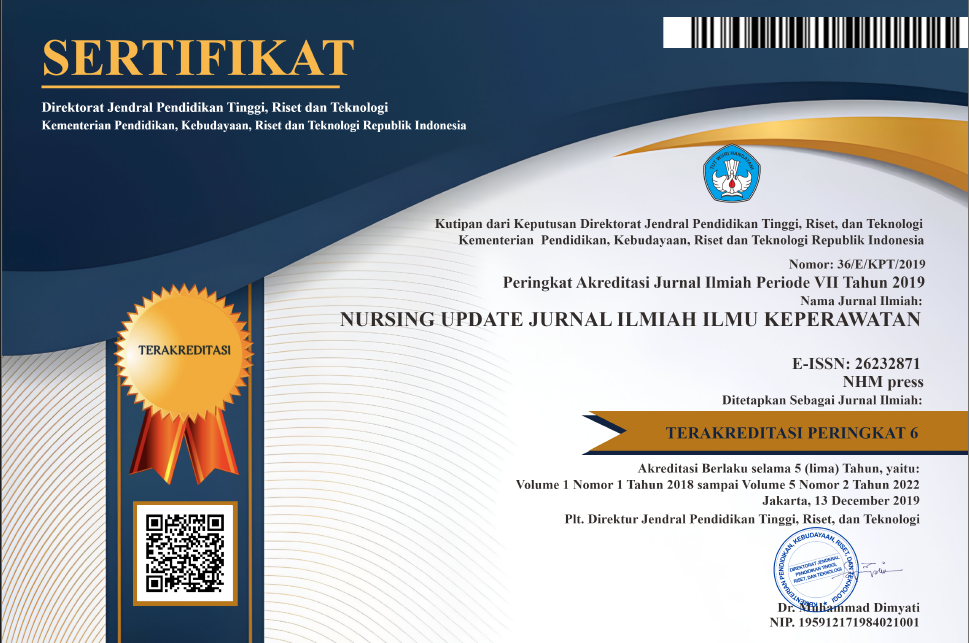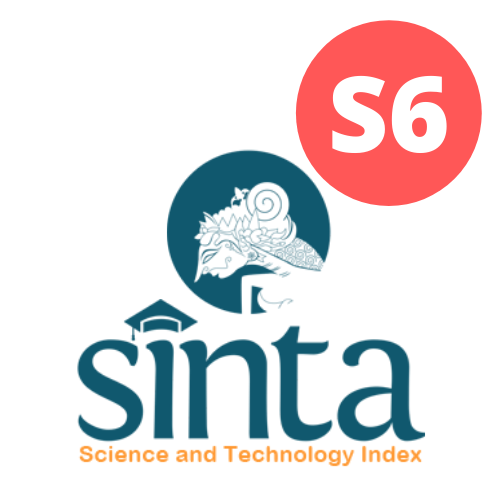HUBUNGAN BEBAN KERJA DENGAN PERILAKU CARING PERAWAT PADA MASA PANDEMI COVID-19
Abstract
Background: Hospital policies during the Covid-19 pandemic have had negative effects for nurses, one of which is the difficulty of maintaining physical and mental health conditions that have an impact on increasing workload. A nurse's workload that is not up to standard will affect the appearance of caring behavior that nurses provide to patients. Goal: This study aims to analyze the relationship of workload with the caring behavior of nurses during the Covid-19 pandemic. Methods: The research design used is correlational analytics with a cross sectional approach. The research sample consisted of 44 nurses and 44 patients taken with cluster sampling techniques. The research instruments used workload questionnaires from Zailani (2015) and Caring Assessment Tool (CAT). This research was conducted at Salatiga Hospital. Data analysis technique using Spearman Rank statistical test with significance α = 0.05 with SPSS 25 program. Results: Nurses with high workloads of 20 nurses (45.5%) and nurses who have a light workload of 8 nurses (18.2%). Patients who assessed the caring behavior of nurses were enough as many as 27 patients (61.4%) and no one judged the caring behavior of nurses bad. The results showed a significant relationship between workload and caring behavior of nurses during the Covid-19 pandemic at Salatiga Hospital with a p-value of 0.027 (p<0.05) and a correlation coefficient value of -0.334. Conclusion: That the lower the workload of nurses, the better the caring behavior of nurses in providing nursing care.Suggestion: It is recommended for hospitals to pay more attention to the workload of nurses by adjusting between working time and the ability of nurses so that optimal nursing services can be achieved.










